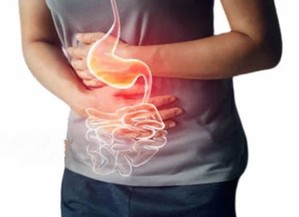IANS File Photo

Limalenden Longkumer
Mokokchung | April 26
Stomach cancer, which is the 5th most common cancer worldwide, is a rarely addressed disease in Nagaland. As in any other type of cancer, stomach cancer is curable if diagnosed and treated in its early stages but most cases remain undiagnosed in Nagaland until it is too late.
This, according to a leading medical practitioner in Nagaland, is because stomach cancer in its early stages is often treated or mistaken as gastritis.
Dr Tialiba Longkumer (M.S. Gen. Surgery), who is attributed to be the second physician in Nagaland and first in Mokokchung to conduct endoscopy, carried out an independent survey in Mokokchung on the prevalence and incidences of stomach cancer in Mokokchung during 2013 to 2017, where a total of 36 patients were diagnosed with stomach cancer.
During this period, he conducted 2000 Upper Gastrointestinal Endoscopy in patients with upper GI complaints, out of which 166 patients showed features suspicious of cancer (APD ulcers excluded). Biopsy was taken in all of the cases to confirm the status.
“The patients with upper gastrointestinal complaints underwent upper GI endoscopy, suspected ulcers or growth on endoscopy underwent biopsy and cancer confirmed by histopathological examination,” confirmed Dr Tialiba.
Of the 166 patients (110 men and 56 women) with ulcer proliferative growth and large ulcers (more than 2cm), 36 patients (29 men and 7 women) had biopsy confirming Stomach Cancer. “Among the 36 cancer patients, only three of them had palliative operation, one Gastrojejunostomy and two subtotal gastrectomy with Gastrojejunostomy. Post operatively, only one patient received chemotherapy 5FU. The operated patients were followed up for one year and eventually expired at home,” Dr Tialiba said of his survey.
According to his study, most of the patients were diagnosed at the late stages of stomach cancer when cure is not possible. He looked into the reasons for late diagnosis and found four common causes. He found prescription of gastric medicine for an extended period of time without doing endoscopy by physicians as one of the reasons. Lack of awareness regarding stomach cancer among patients and physicians; fear on the part of patients to undergo endoscopy even when it is advised on time by physicians; and abuse of gastric medicine by patients themselves without undergoing endoscopy were the other three reasons.
While emphasizing that further studies were needed, the doctor said that, as of now, “the study indicates that detection of cancer at late stages due to lack of awareness for confirmatory endoscopy by physicians as well as the patients are the most important factors for poor outcome of treatment in stomach cancer, which is curable if detected in the early stages.”
Pointing out that cancer is a silent killer, he advised patients against starting gastritis medication without endoscopy. He further stated that lack of appetite, burning sensation in the stomach and gastric pain with feeling of indigestion were common symptoms.
On the causes of stomach cancer, the doctor said that it was mostly genetic, though consumption of alcohol, tobacco and smoked and spicy food were also factors. Stage 1 and Stage 2 stomach cancer are completely curable; but Stage 3 and Stage 4 are not curable though the patient’s life can be prolonged through medication, he said.
In the context of Mokokchung and Nagaland, the doctor stated that endoscopy was the only way for early diagnosis of suspected stomach cancer. He also cited the example of Japan where the government has introduced endoscopic screening for stomach cancer as a national program.






